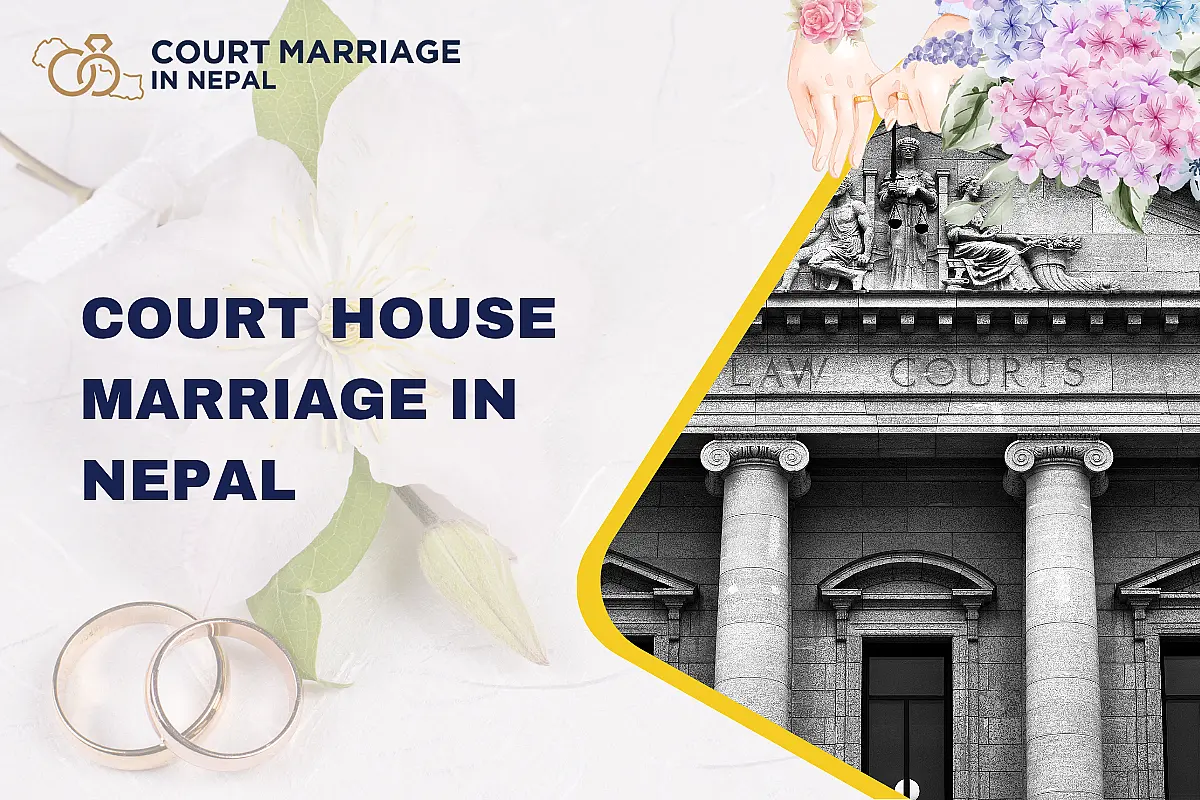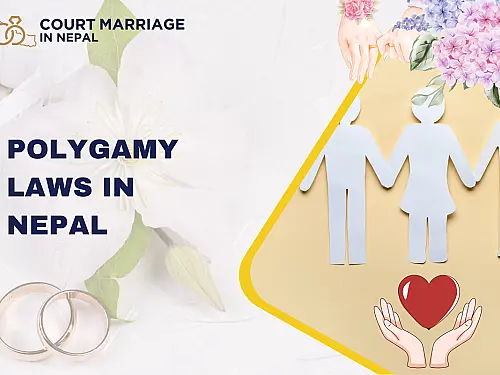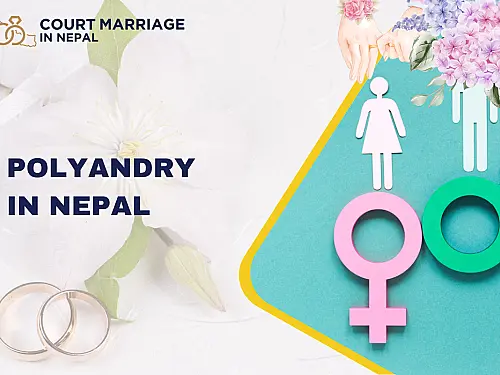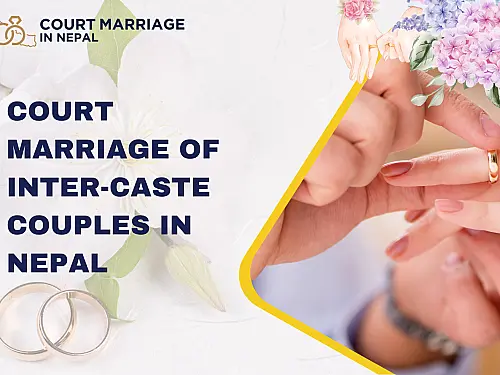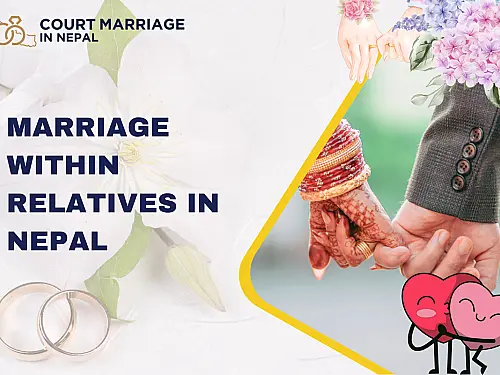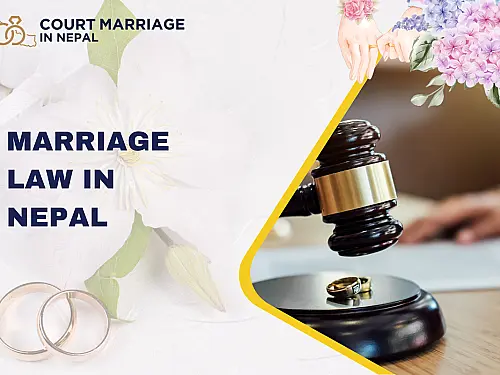Choosing for a marriage at a Nepali court provides numerous practical benefits. Initially, it guarantees the acknowledgment and safeguarding under Nepali law, offering assurance and understanding concerning conjugal entitlements and obligations. Court marriages in Nepal are usually quick and simplified, saving couples from elaborate ceremonies and the costs involved. Additionally, it streamlines administrative processes for paperwork and enrollment, making it easier to obtain spouse benefits and official documents. Choosing a court marriage in Nepal provides a simple way to legalize a union while following local rules, combining convenience and legality.
Why should you choose Court Marriage in Nepal?
- Legal Recognition
Official acknowledgment of court weddings in Nepal means that once a marriage is conducted and documented through the court, it is recognized as legitimate and legally enforceable according to Nepali regulations. This entails:
- Relationship Status:
Court marriages confer a legally recognized marital status on the couple. This signifies that they are legally acknowledged as partners, with the full range of rights and duties that accompany a marital relationship.
- Legal Rights:
Legal rights are available to couples in Nepal when they register their marriage, providing them with certain legal advantages that married individuals have. These rights may involve owning property, inheriting assets, making healthcare decisions, and receiving legal benefits related to marriage.
- Legal responsibilities:
Likewise, civil unions require legal responsibilities from both individuals. This entails duties like providing mutual assistance, being faithful, and fulfilling responsibilities towards children if they choose to have them, as mandated by Nepali family law.
- Certainty and Clarity:
Couples can ensure their marital status is clearly documented by getting a marriage certificate through a court marriage. This document acts as evidence of their legal connection, ensuring clarity in legal issues and streamlining administrative procedures that might necessitate marriage verification.
- Legal protection in Nepal:
Court marriages ensure that married couples receive the same rights and protections as outlined in Nepali law. This protection also covers conflicts within the marriage, divorce cases, and any other legal problems that might come up while the marriage is ongoing.
- Recognition from authorities:
Government bodies, financial institutions, employers, and other organizations accept court marriages as legitimate and legally enforceable. This recognition helps the couple to confirm their marital status in different official situations and transactions.
- Simplicity and Efficiency
The court marriage procedure in Nepal is simple and efficient, taking less time than traditional ceremonies. This effectiveness saves time and effort for the couple while also minimizing the bureaucratic obstacles usually connected with formal weddings. This entails:
- Basic requirements:
Court marriage usually has fewer prerequisites in comparison to traditional wedding ceremonies that often include complex rituals, ceremonies, and cultural traditions. Court marriages in Nepal typically necessitate essential documents like ID proofs, address proofs, birth certificates, and photographs of the couple.
- Location:
Court marriages typically take place in only one spot, usually either at the district court or a specific marriage registration office. This removes the necessity of having several locations, which decreases the complications of organizing and traveling for the couple and their guests.
- Standardized protocols:
Legal regulations outline uniform procedures for court marriages, guaranteeing consistency and predictability throughout the process. This clearness aids couples in understanding their obligations and streamlines the necessary procedures.
- Legal guidance:
Legal guidance is commonly provided to couples during the court marriage process by court officials or legal professionals to help them with paperwork and to understand their rights and responsibilities as spouses. This advice simplifies the procedure and ensures adherence to legal obligations.
- Efficiency in terms of time:
Court marriages are usually finished more quickly than traditional weddings, which can last for several days or weeks, particularly in the varied cultural settings of Nepal. This frees up time for the couple to concentrate on other parts of their life as a couple.
- Decreased Administrative Obstacles:
Formal weddings may require dealing with intricate bureaucratic processes like securing permits, collaborating with religious figures, and following cultural traditions. In Nepal, court marriages reduce bureaucratic barriers by closely following legal criteria, thus easing administrative burden on the couple.
- Scheduling Flexibility:
Court marriages provide the opportunity for flexible scheduling, unlike traditional weddings which are often restricted by auspicious dates or cultural preferences. Couples have the flexibility to select a date and time that works best for them, allowing for easier coordination with work schedules and personal obligations.
- Cost Savings:
The simplified process of civil weddings frequently results in financial savings for the partners. Court weddings are a more cost-effective choice as they eliminate the need for spending on venue rentals, fancy decorations, catering, and other typical wedding costs.
- Privacy:
Court marriages offer a secluded environment for couples who desire a simple ceremony away from the attention and societal expectations of regular weddings. This may be particularly attractive for couples who wish to concentrate solely on their commitment without any outside distractions.
- No religious Restriction:
There are no religious limitations in countries like Nepal, where court marriages are not influenced by customs or rituals. This allows couples from various religious backgrounds to participate without needing to follow particular religious rituals or deal with challenges from differing beliefs.
- Documentation:
Court marriages guarantee the correct documentation of the marriage. This documentation is essential for receiving legal benefits, inheritance rights, and can help with future visa applications if one or both partners are international.
- Protection Against Social Stigma:
Choosing a court marriage can shield couples from social stigma, especially in situations like inter-caste or inter-religious marriages, where societal pressures or objections may occur during traditional weddings. Court marriages are centered on the consent of the couple and adherence to legal requirements, rather than conforming to societal norms.
- Flexibility:
Couples have the freedom to choose the date and time for a court marriage. This adaptability enables them to plan the ceremony based on their own schedule and preferences, preventing any conflicts or limitations that may arise with traditional ceremonies.
- Official confirmation:
Legal marriage results in an official certificate from the government. This certificate is legally valid and accepted for all legal purposes in Nepal. If properly authorized according to international standards, the recognition of the marriage abroad can benefit couples intending to live or travel overseas.
- Legal Support:
Legal assistance is usually offered to guarantee all necessary legal requirements are properly met during the court marriage registration process. This assists the couple in maneuvering through the necessary paperwork and legal requirements.
Navigating the Legalities:
Before declaring your love before the law, familiarize yourself with the key legal aspects:
- Eligibility: Both partners must be at least 20 years old, mentally sound, and unmarried. Proof of age and identity will be required.
- Consent: Both partners must freely and mutually consent to the marriage. Any pressure or coercion can render the marriage invalid.
- Prohibited relationships: Marriage between close relatives, such as siblings or parents, is prohibited.
- Foreigners: If you're a foreigner marrying a Nepalese citizen, you'll need additional documents, including a valid passport, visa, and a "No Objection Letter" from your home country or embassy. For detailed information on specific requirements, you can refer to this helpful resource: Rules for Court Marriage in Nepal for foreigner
Planning Your Courthouse Marriage in Nepal:
Once you've navigated the legalities, here's how to make your special day truly memorable:
- Obtain a Marriage License: Visit the District Administration Office where you or your partner reside. Submit the required documents and pay the necessary fees.
- Choose Your Courthouse: Different districts offer varied settings. Some courthouses have dedicated wedding spaces with elegant décor, while others provide simpler rooms. Choose the one that best suits your preferences.
- Witnesses (optional): While not mandatory, having two witnesses adds a personal touch and fulfills certain legal requirements. Select trusted individuals to share your special moment.
- Officiant: District courts appoint authorized officials to perform ceremonies. Alternatively, you can request a specific judge or minister, subject to their availability.
- Personalize it!: Even in a simple setting, create a meaningful experience. Compose your own vows, exchange meaningful tokens, or incorporate Nepalese customs like exchanging garlands or offering puja to add cultural significance.
Beyond the Courthouse:
Your marriage is more than just the ceremony. Celebrate your union in other ways!
- Post-wedding Celebration: Host a reception or gathering with friends and family to share your joy and enjoy traditional Nepali music, dance, and delicacies.
- Romantic Getaway: Escape to the picturesque Nepalese mountains or serene countryside for a honeymoon filled with adventure and intimacy.
- Religious Ceremony: If desired, plan a separate religious ceremony later to reflect your spiritual beliefs and incorporate traditional blessings.
Courthouse marriage in Nepal offers a beautiful and convenient option for couples seeking a simple yet meaningful start to your married life. Embrace the opportunity to declare your love amidst the stunning natural beauty of Nepal and cherish the memories of your unique and authentic union.
Additional Tips:
- Research potential wedding locations within your chosen district and inquire about available amenities and scheduling details.
- Consider hiring a local wedding planner who can assist with navigating the formalities and recommending additional services like flower arrangements or photography.
- Explore online resources or forums dedicated to Nepali marriages for further advice and inspiration.
Congratulations on your upcoming wedding! May your journey as husband and wife be filled with love, laughter, and endless blessings from the majestic Himalayas.
At Court Marriage In Nepal, a registered law firm operating as Court Marriage In Nepal Pvt. Ltd., we specialize exclusively in Court Marriage Nepal. As the first law firm in Nepal dedicated to court marriage services, we assist both Nepali citizens and foreign nationals with the court marriage registration process in Nepal, including complete legal support for court marriage registration for foreign citizens in Nepal. As a trusted marriage firm in Nepal and a licensed law firm in Nepal, we ensure a smooth, lawful, and stress-free experience. Contact us today for confidential assistance with court marriage registration in Nepal.

